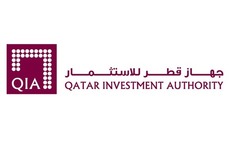
Q&A: Sanjiv Kapur of Wolfensohn India Advisors
Sanjiv Kapur, managing director of Wolfensohn India Advisors, explains how private equity firms can keep their investors and their investment professionals happy
Q: What are the principal challenges facing the PE industry?
A: First and foremost, I think return expectations need to be met because the search for yield that led to the large rush of capital into the industry is looking in askance. Exits in public markets have stalled and so one sees a lot of secondary transactions between private equity firms. Increased regulations both on operations and compensation may act as a dampener overtime.
Q: What are your clients' concerns and how are you dealing with them?
A: The three principal concerns they have are valuations, deal velocity and exits. Of these, valuations are driven by the demand and supply situation and currently, they are more attractive as competitive pressures from capital markets have reduced. By narrowing our target industries we have been able to do a better job in screening opportunities to improve deal velocity. And as far as exits are concerned, we've returned capital on our largest investment and the second one is already teed up for exit, so investors are seeing capital being returned.
Q: Infrastructure remains a big story in India. What are your tips on finding sound investment opportunities, and what do you advise your clients to avoid?
A: Infrastructure investment, of course, is critical to sustain growth in India. The three things that you should keep in mind when selecting a local partner to navigate the infrastructure opportunity are: you have shared values on governance; you have shared values on the environment; and the partner has the capacity to get all the permits, especially for land acquisitions and financial closure. These are tricky issues and can turn a project from being extremely attractive on paper to being a non-starter. A lot of people have actually gotten caught up in this quagmire. Also, one should have realistic return expectation in the high teens due to inordinate delays in execution.
Q: High-profile defections at the region's PE funds have been a real trend. Should investors be worried about this?
A: I think this phenomenon goes in cycles. Private equity in Asia is still a cottage industry and institutionalization will take a while. The sponsors for the financial institutions at this point are facing challenges because of regulations, and the family offices along with endowments also have been through some adjustments both through the financial crisis and the recent fear-factor. But once you look beyond the revolving door, things are fairly normal as for any young growing industry. The industry will continue to scale, capital will flow in spurts, and talented individuals will look to increase their independence and establish new franchises. Mortality rates will continue to be high.
Q: How about retention - is there anything that private equity firms can do to keep their managers?
A: Carry as a retention tool is a logical concept but, practically, I suspect it has failed to achieve that goal because if you don't touch the carry, you don't own it. A number of new franchises were started by those that did not touch carry but had unrealized gains and sought independence and got exuberant backing in the bull market.
Q: Is there a way for institutions to adopt measures that grant investment teams more autonomy, thereby perhaps reducing their desire to spin out their own funds?
A: Institutions have to give managers a sense of empowerment and continuity so they feel that they can build a sustainable franchise and it's not a one-off shot. They need to feel they're creating something that they as a team share in. You have to replicate the carry structure in a manner that they all feel that, while they're under the umbrella of a large organization, they are suitably recognized and rewarded. It's not difficult to do; the risk is of rampant strategy drift. Some large household brands have been in and out of this asset class with regularity. The institutions need to be committed to doing private equity in-house. Once that clarity emerges, they can build a strong business with committed talent.
Q: Speaking of spin offs, if you weren't in private equity, what would you be doing?
A: I'd be traveling the world without a briefcase, absorbing new cultures, new cuisines and possibly, new languages.
Latest News
Asian GPs slow implementation of ESG policies - survey
Asia-based private equity firms are assigning more dedicated resources to environment, social, and governance (ESG) programmes, but policy changes have slowed in the past 12 months, in part due to concerns raised internally and by LPs, according to a...
Singapore fintech start-up LXA gets $10m seed round
New Enterprise Associates (NEA) has led a USD 10m seed round for Singapore’s LXA, a financial technology start-up launched by a former Asia senior executive at The Blackstone Group.
India's InCred announces $60m round, claims unicorn status
Indian non-bank lender InCred Financial Services said it has received INR 5bn (USD 60m) at a valuation of at least USD 1bn from unnamed investors including “a global private equity fund.”
Insight leads $50m round for Australia's Roller
Insight Partners has led a USD 50m round for Australia’s Roller, a venue management software provider specializing in family fun parks.







